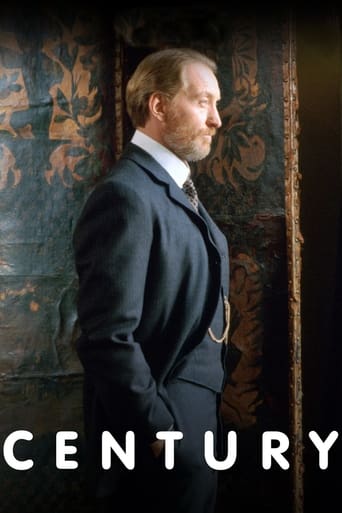donna-412
I may be a little bias as my son was in this film, he played the little boy who walks along clattering a stick on the railings....he was only 4 or 5 at the time and now he is 22. The film itself is gripping, with the fabulous Clive Owen, Miranda Richardson and Charles Dance. It was filmed mostly at Croxteth Country Park in Liverpool, which is a great setting with the big house and vast parkland area. I love this film and would love to find a DVD copy as I only have a Video copy at the moment. It was very hard to find and I think they should do a re-release of it so you can all enjoy......look out for my son too! Support our local filmed movies
BOOKMAN3
I was excited to discover this early movie by Stephen Poliakoff, the prolific British writer-director. An added bonus was the presence of Clive Owen, Miranda Richardson and Charles Dance, who are among my favorite actors. Nonetheless, the story makes almost no sense and you wonder why the movie was ever made. Owen describes Dance, the director of a medical research institute, as the most brilliant man he had ever met, even after they feud and become antagonists, but we are never shown anything about Dance to justify this extravagant praise. Similarly, Dance tells Owen, a specialist in physiology, that he is his most promising young doctor, yet we never see Owen do anything in that field. So, if you would enjoy seeing Clive Owen looking incredibly handsome, or seeing Miranda Richardson sensuous and bare-breasted, then CENTURY might be worth viewing, but if your highest value in a movie is a story that makes sense, look elsewhere.
Zen Bones
This is one of those little films that pack in a lot of information but in such a subtle manner that you feel you're watching life, not a movie.Clive Owen (in what I still think is his best performance to date) plays a rising young Jewish doctor who is thrilled to be under the tutelage of one of Britain's greatest doctors. It is the turn of the 19th to 20th century, and the fields of science are astounding the populace. It's an exciting time to be living and witnessing changes that will surely better society. But there is a negative element to science when responsibility to humanity is erased. Owen discovers things about his mentor that he finds truly disheartening, and he feels an obligation to reveal the man's 'crimes' to society.The film has much to say about the role of science and technology verses humanity, as well as how humanity is defined. There are still millions of people today who will look on immigrants or people of different races or classes as lesser human beings (or in some cases, not human at all!). In 100 years, this film shows us that despite the benefits of technology, we as a people are no more enlightened, and that is because the human element has often been tossed aside. This film is never preachy though. All the acting is superb, and the art direction and cinematography match those of any of the best period films made in the past decade. This is a thoughtful, intelligent and masterful work.
Greg
I'm not surprised to see no reviews as of yet for this movie. I saw it in Brighton, England when it came out and have been checking shelves at video stores and libraries ever since then, and haven't found it.I can't remember the story well enough to know whether the following is a spoiler or not, so beware...The story addresses adherence to the idea of "Eugenics" in a time before genetic inheritence was properly understood. This ghastly philosophy held that it was society's obligation to try to rid the world of undesirable human traits (like disease) simply by preventing people having the affliction from procreating (even if it meant seeking to prematurely end the potential procreators life). The young doctor gradually discovers that his mentor is putting this belief to practice. This happens against the backdrop of the change of century on New Year's eve, Jan 31, 1899. An interesting piece about a lesser-known dark-age in science, whose inability to die a timely death may have led to the thinking behind the Nazi Holocaust.


